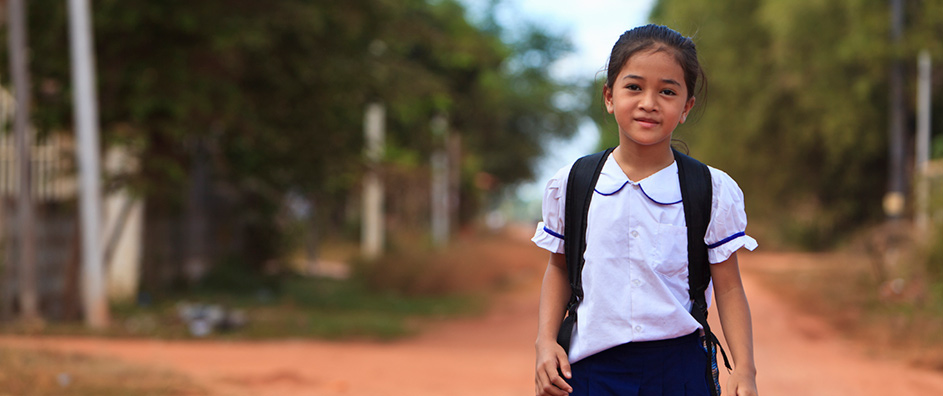In contemporary discourse, the education of girls has emerged as a pivotal focus, particularly in the context of global development and social equity. Within the Bahá’í teachings, the education of girls is promulgated as not merely important, but fundamentally essential—a perspective that elevates the discourse surrounding gender parity in education. This article elucidates the multifaceted dimensions of this topic, exploring historical context, core Bahá’í principles, socioeconomic impacts, and the overarching importance of empowering girls through education.
The Bahá’í faith, founded in the mid-19th century, espouses the principle of the fundamental oneness of humanity. This tenet undergirds all social values, including the imperative for universal education. In this framework, girls and boys are seen as equals in potential and capability. Therefore, the question of whether educating girls is more essential than educating boys must be nuanced; it is not a matter of hierarchy but of addressing historical and systemic inequalities that have disadvantaged girls and women. This perspective is rooted in the recognition that a balanced and equitable society flourishes when all members—regardless of their gender—are afforded the opportunity to pursue education.
A critical historical context reveals that girls’ education has historically been neglected, often relegated to the periphery of educational initiatives. In many cultures, entrenched normative beliefs posited that girls were primarily destined for domestic roles, leading to an undervaluation of their educational aspirations. This bias has been dismantled over time, yet remnants of this ideology persist in certain societies, creating barriers to girls’ access to education. The Bahá’í teachings advocate for the elimination of these barriers, positing that educating girls not only counters historical injustices but also cultivates a generation of women who can contribute meaningfully to society.
At the core of Bahá’í teachings lies the recognition that education is a spiritual as well as an intellectual pursuit. The development of the mind is intricately linked to the growth of the soul. Thus, equipping girls with knowledge is paramount not only for their personal development but also for the advancement of communities and nations. In this light, the education of girls is framed not simply as an act of social justice but as a catalyst for holistic societal advancement.
The socioeconomic implications of educating girls are profound. Studies have consistently shown that when girls receive an education, they are more likely to delay marriage and childbirth, pursue professional careers, and contribute economically to their families and communities. Furthermore, educated women are more likely to prioritize the education of their children, thus fostering a virtuous cycle that elevates entire generations. In the Bahá’í view, this cyclical enhancement aligns with the notion of servitude to humanity—a central ideal within the faith. Educated women serve not only as role models but as key agents for social change.
Moreover, the inclusive nature of girls’ education can lead to advancements in public health, economic stability, and political participation. For instance, communities that prioritize girls’ education often experience lower rates of maternal and infant mortality and improved health outcomes overall. Conversely, societies that neglect the education of girls face myriad challenges, including stagnated economic growth and heightened social conflict. In essence, the investment in girls’ education is inextricably linked to societal progress, making it a vital concern for development at large.
In the Bahá’í framework, empowering girls through education transcends mere access to schooling. It entails fostering environments that encourage critical thinking, creativity, and reflection. Educational practices rooted in equality enable girls to explore their potential in diverse fields such as science, technology, the arts, and leadership. The Bahá’í community actively promotes initiatives that create safe and nurturing educational environments that are sensitive to the unique needs of girls. This involves not only pedagogical changes but also addressing societal attitudes that may hinder girls’ educational journeys.
Furthermore, male involvement in the education of girls is integral to shifting paradigms. The Bahá’í teachings emphasize that true equality can only be achieved through the concerted efforts of both genders. Men and boys are encouraged to participate actively in fostering environments that value and support girls’ education. Such collaboration is essential to dismantling outdated stereotypes and ensuring that all members of society recognize the contributions of educated women.
As the global landscape shifts toward greater gender parity, the Bahá’í perspective remains relevant. The commitment to educational equality is both a moral and a practical necessity. In a world riddled with conflict and division, the empowering of girls through education can serve as a unifying force, bridging gaps created by gender, socioeconomic status, and cultural divides. It is both an individual and a collective responsibility to advocate for and uphold the right to education for girls everywhere.
In conclusion, the Bahá’í teachings underscore the importance of educating girls as not only an essential component of social equity but as a cornerstone for holistic community development. The implications of this education are extensive, resonating across economic, social, and health domains. By prioritizing girls’ education, we embark on a path toward a more just, equitable, and flourishing world—one that honors the potential of every individual, irrespective of gender. As we continue to engage with these profound teachings, may we all strive toward fostering a society where the education of girls is celebrated and regarded as a fundamental right and an invaluable asset to humanity.
